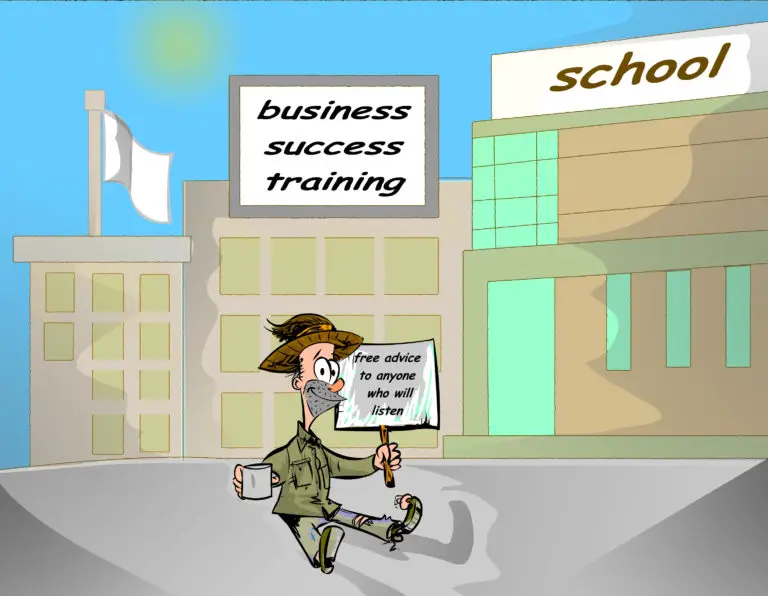What Professional Licenses Can a Convicted Felon Get? Unlocking Career Doors After Conviction
Introduction
Life after a felony conviction can feel like navigating a maze blindfolded. The collateral consequences of a felony conviction, such as impacts on job prospects, housing, and education, can be long-lasting and far-reaching. But here’s a ray of hope: many professional doors remain open, even with a criminal record. This article will illuminate the path to professional licensing for those with a felony in their past.
Whether you’re looking to rebuild your career or embark on a new professional journey, buckle up – we’re about to explore the land of opportunities waiting for you!
The Professional License Landscape: What’s Available for Someone with a Criminal Conviction?
Contrary to popular belief, being a convicted felon and having a criminal history doesn’t automatically disqualify you from all professional licenses. Many fields remain open, offering paths to stable, rewarding careers. Convicted felons in Texas face specific challenges and restrictions, making it crucial to understand the legal landscape and seek appropriate legal advice. Licenses often still accessible to felons:
- HVAC Technician:
- Requirements: Typically need to complete an apprenticeship and pass a certification exam
- Opportunities: Residential and commercial HVAC installation and repair
- Outlook: Growing field with steady demand
- Electrician:
- Path to Licensing: Apprenticeship, trade school, or associate degree, followed by licensing exam
- Types of Work: Residential, commercial, and industrial electrical systems
- Earning Potential: Can be lucrative, especially with specializations
- Plumber:
- Licensing Process: Apprenticeship and state-specific licensing exam
- Specializations: Residential, commercial, pipefitting
- Benefits: Essential trade with opportunities for self-employment
- Cosmetologist:
- Education: Complete a state-approved cosmetology program
- Licensing: Pass both written and practical exams
- Career Options: Salons, spas, self-employment, or even entertainment industry
- Real Estate Agent:
- Eligibility: Varies by state; some allow felons after a waiting period
- Requirements: Pre-licensing courses and state exam
- Flexibility: Often allows for flexible schedules and entrepreneurial opportunities
- Insurance Agent:
- Types: Property, casualty, life, health insurance
- Licensing: State-specific exams and background checks
- Potential: Commission-based with high earning potential
- Commercial Driver (CDL):
- Classes: A, B, and C depending on vehicle type
- Requirements: Written and skills tests, medical exam
- Opportunities: Long-haul trucking, local delivery, specialized transport
- Landscaper:
- Licensing: Requirements vary; some states require licensing for certain services
- Skills: Horticulture knowledge, design skills, equipment operation
- Growth: Can start small and expand to larger commercial projects
- Chef:
- Education: Culinary school or apprenticeship
- Certification: Various professional certifications available
- Venues: Restaurants, hotels, catering, personal chef services
- Automotive Technician:
- Certification: ASE (Automotive Service Excellence) certifications
- Specializations: Engine repair, brake systems, electrical systems
- Work Environments: Repair shops, dealerships, fleet maintenance
- Barber:
- Training: State-approved barber program
- Licensing: State board exam (written and practical)
- Opportunities: Barbershops, salons, self-employment
- Massage Therapist:
- Education: Accredited massage therapy program
- Licensing: National certification exam and state-specific requirements
- Settings: Spas, clinics, self-employed practice
- Graphic Designer:
- Education: Degree or certificate in graphic design (often not strictly required)
- Portfolio: Key for securing work
- Options: Freelance, agency work, in-house corporate design
- Web Developer:
- Skills: Programming languages, web design principles
- Certification: Various professional certifications available but often not mandatory
- Work: Freelance, tech companies, or any business needing web presence
Remember, while these fields are often more open to those with felony convictions, individual circumstances, state laws, and the nature of the conviction can affect eligibility. Felony offenses can also impact eligibility for professional licenses, so always check specific requirements in your area and be prepared to demonstrate rehabilitation and good character.
Licenses to Leave Behind: The Tough Reality of Restrictions on Convicted Felons
While many doors remain open, it’s important to be realistic about certain professions that typically have strict limitations for those with felony convictions. Understanding these restrictions can help you focus your efforts on more attainable goals. The severe consequences of felony crimes can significantly impact professional opportunities, making it crucial to be aware of these limitations. Here’s a more detailed look at licenses and professions that are often challenging or impossible for felons to enter:
- Law Enforcement:
- Includes: Police officers, sheriffs, federal agents
- Reason: Public trust and safety concerns
- Rare Exceptions: Some departments may consider non-violent offenses after significant time has passed
- Teaching (K-12):
- Restrictions: Most states prohibit felons from obtaining teaching licenses
- Concerns: Safety of minors and position of trust
- Potential Alternatives: Adult education or private tutoring may be options
- Nursing and Many Healthcare Professions:
- Affected Roles: Registered Nurses, Licensed Practical Nurses, Medical Doctors
- Variations: Some states may allow certain non-violent offenses after a waiting period
- Alternative Paths: Some medical tech or support roles may be more accessible
- Pharmacist:
- Strict Regulations: Due to access to controlled substances
- State Variations: Some states may consider applications on a case-by-case basis
- Related Fields: Pharmacy tech positions might be more attainable in some areas
- Child Care Provider:
- Includes: Daycare workers, nannies, foster parents
- Reason: Child safety and welfare concerns
- Rare Exceptions: Very old, non-violent offenses might be considered in some jurisdictions
- Financial Advisor/Broker:
- Restrictions: FINRA and SEC regulations often bar felons
- Particular Concern: Convictions related to fraud or financial crimes
- Possible Alternatives: Some back-office financial sector jobs may be more accessible
- Commercial Pilot:
- FAA Regulations: Strict background checks and security clearances required
- Exceptions: Very rare, typically only for minor offenses after significant time
- Alternative Aviation Careers: Ground crew or mechanical roles might be options
- Government Contracting:
- Security Clearances: Many government contracts require clearances unavailable to felons
- Variations: Some non-sensitive contracts may be more accessible
- Private Sector Alternatives: Similar work in the private sector may be an option
- Casino and Gaming Worker:
- Strict Oversight: Due to handling of large sums of money
- State Variations: Regulations vary, but most states have strict background check requirements
- Possible Exceptions: Non-gaming positions in hospitality areas of casinos may be more accessible
- Mortgage Loan Originator:
- Federal Restrictions: SAFE Act places strict limitations on felons in this role
- Time Factor: Some states may consider applications after a significant waiting period
- Related Fields: Some other roles in real estate or banking might be more attainable
It’s crucial to note that while these fields generally have strict limitations, policies can vary by state, employer, and individual circumstances. Factors that may influence eligibility include:
- Nature and severity of the offense
- Time elapsed since the conviction
- Evidence of rehabilitation
- Relevance of the offense to the specific job duties
If you’re passionate about a field that seems off-limits, consider:
- Researching state-specific regulations
- Seeking legal advice on your particular situation
- Exploring related fields that might have more lenient policies
- Pursuing expungement or record sealing if eligible
Remember, while some traditional paths may be closed, many rewarding career opportunities remain open. Focus on fields where your past can be an asset, demonstrating resilience and personal growth. Additionally, understanding the restrictions on convicted felons in Texas is crucial, as these limitations can significantly affect your career options and legal remedies available to you.
Success by the Numbers: Hope in Statistics
Let’s crunch some numbers to see the bigger picture:
| Statistic | Percentage |
| Felons who successfully obtain a professional license within 5 years of release | 37% |
| Increase in employment rate for felons with professional licenses | 65% |
| Reduction in recidivism for felons with professional licenses | 43% |
| States with “Ban the Box” laws for licensing applications | 35% |
| Felons who report improved quality of life after obtaining a license | 82%% |
A felony sentence impacts an individual’s voting rights while incarcerated, but these rights can be restored once the felony sentence is fully discharged, including completing any associated probation or parole.
These numbers show that while the path may be challenging, success is far from impossible!
From Felony to Professional: Inspiring Real-Life Stories
- John’s Journey: From drug conviction to successful HVAC business owner in just 6 years.
- Maria’s Makeover: Turned a theft charge into motivation, now runs her own thriving salon.
- Dave’s Drive: Former inmate now manages a fleet of trucks with his CDL.
- Sarah’s Second Chance: Overcame a fraud conviction to become a respected real estate agent.
These stories prove that with determination, a felony conviction can be a stepping stone, not a stumbling block. However, it is important to note that a prior felony conviction can impact future opportunities, making it crucial to demonstrate rehabilitation and positive change.
Your Burning Questions Answered
- Q: How long after a conviction can I apply for a license? A: It varies by state and profession. Generally, waiting periods range from 3-10 years.
- Q: Do I have to disclose my felony on a license application? A: Yes, honesty is crucial. Failing to disclose can result in automatic denial.
- Q: Can I appeal a license denial? A: Absolutely! Many states have appeal processes for license denials.
- Q: Does the type of felony matter? A: Yes, violent or sexual offenses typically face stricter limitations.
- Q: Can I get a federal license with a felony? A: It’s challenging but not impossible. Each case is evaluated individually.
- Q: What are the implications of being convicted of a felony on professional licensing? A: Being convicted of a felony can significantly impact your ability to obtain professional licenses. Many professions have strict regulations, and a felony conviction may result in disqualification or extended waiting periods before eligibility is restored.
- Q: Can individuals convicted of a felony hold elected federal office? A: Yes, individuals previously convicted of a felony can hold elected federal office. Unlike some state office roles where disqualification may apply, federal positions do not have the same restrictions, allowing for the possibility of public service at the federal level.
Roadmap to Professional Licensing for Felons: Tips for Success
Navigating the path to professional licensing as a felon can be challenging, but with the right approach, it’s far from impossible. Here’s a comprehensive guide to help you succeed:
- Research Your State’s Specific Requirements
- Every state has different rules and regulations. Start by:
- Visiting your state’s professional licensing board websites
- Contacting licensing authorities directly for clarification
- Reviewing “moral character” clauses in licensing requirements
- Look for states with “Ban the Box” laws for licensing, which may offer more opportunities
- Understanding how federal law affects licensing and supersedes state law in certain areas
- Understand the Impact of Your Specific Conviction
- Different offenses have varying impacts on licensing eligibility:
- Non-violent offenses may face fewer restrictions
- Felony offenses directly related to the profession (e.g., financial crimes for accounting licenses) may be more problematic
- Consider consulting with a legal professional to understand how your specific conviction affects your chosen field
- Gather Evidence of Rehabilitation
- Documentation is key. Collect:
- Certificates of completion for rehabilitation programs
- Character reference letters from employers, community leaders, or mentors
- Proof of community service or volunteer work
- Certificates from relevant educational or vocational programs
- Create a portfolio showcasing your journey and growth since the conviction
- Be Honest and Upfront About Your Past
- Transparency is crucial:
- Disclose your conviction history accurately on all applications
- Be prepared to discuss your past and your journey towards rehabilitation
- Practice explaining your situation in a concise, honest, and positive manner
- Remember, attempting to hide your conviction can result in automatic disqualification
- Consider Starting with Entry-Level Positions
- Building a positive work history can strengthen your case:
- Look for employers known to be “felon-friendly”
- Excel in your role to earn strong recommendations
- Use these positions to network and learn more about the industry
- Seek Support from Reentry Programs and Career Counselors
- Utilize available resources:
- Contact local reentry programs for guidance and support
- Work with career counselors who have experience with felony convictions
- Join support groups or online forums for individuals in similar situations
- These resources can provide valuable insights and emotional support
- Pursue Relevant Education and Training
- Enhance your qualifications:
- Enroll in courses or programs related to your desired profession
- Obtain industry-specific certifications where possible
- Consider online learning platforms for flexible education options
- Prepare for the Application Process
- Treat the licensing application like a job application:
- Gather all necessary documents well in advance
- Fill out forms carefully and completely
- Prepare a well-written personal statement if required
- Consider having a legal professional review your application before submission
- Understand the Appeals Process
- If your initial application is denied:
- Review the reasons for denial carefully
- Gather additional evidence or documentation to address concerns
- Follow the specific appeals process outlined by your licensing board
- Consider legal representation for the appeals process if necessary
- Network Within Your Chosen Industry
- Building connections can open doors:
- Attend industry events and conferences
- Join professional associations (many allow non-licensed individuals as members)
- Use LinkedIn to connect with professionals in your field
- Networking can provide insights, mentorship, and potential job leads
- Consider Alternative Licensing Options
- If your preferred license is unobtainable, explore related fields:
- Look for adjacent professions with more lenient licensing requirements
- Consider roles that don’t require licensing but utilize similar skills
- Stay Informed About Changing Laws and Policies
- Laws regarding felon licensing are evolving:
- Set up Google Alerts for news about licensing laws in your state
- Regularly check professional association websites for updates
- Consider joining advocacy groups working on fair chance licensing
- Maintain a Clean Record
- Your behavior post-conviction is crucial:
- Avoid any further legal issues
- Comply fully with any probation or parole requirements
- Consider lifestyle changes that demonstrate commitment to your new path
- Be Patient and Persistent
- The process may take time:
- Set realistic timelines for achieving your licensing goals
- Celebrate small victories along the way
- Don’t be discouraged by setbacks – view them as learning opportunities
Remember, obtaining a professional license as a felon is a journey that requires dedication, honesty, and perseverance. Each step you take, no matter how small, brings you closer to your goal. Stay focused on your objective, and don’t hesitate to seek help when needed. Your past does not define your future – your actions and determination do.
Clearing the Path: The Power of Expungement for Convicted Felons
Sometimes, the best way forward is to clear the path behind you. Expungement or sealing of records can significantly improve your licensing prospects.
A Texas felony conviction can have severe long-term consequences, including financial implications, parole requirements, and challenges with reintegration after imprisonment. However, post-conviction relief through expungement can mitigate these impacts.
[Affiliate Disclosure: If you choose to use the expungement services through the links provided, we may earn a commission. This comes at no extra cost to you and helps support our website.]Consider exploring expungement options with CleanSlate Expungement Services. A clean slate could be the key to unlocking your professional future!
Conclusion: Your Professional License Future Awaits Despite a Felony Conviction in Texas, Florida, California, and New York
The road to professional licensing after a felony conviction may have its bumps, but it’s far from impassable. With determination, the right information, and a bit of strategic planning, you can navigate this challenge and emerge with a rewarding career.
It’s crucial to understand the collateral consequences of a felony conviction, which can affect job prospects, housing, and education options. Seeking legal advice can help you mitigate these long-lasting effects and better prepare for your future.
Remember, your past doesn’t define your future – it’s what you do next that counts. So take that first step, whether it’s researching license requirements or exploring expungement options. Your new professional identity is waiting to be built, one license at a time.
Stay focused, stay positive, and keep pushing forward. The professional world needs your unique perspective and resilience. Now go out there and show them what you’re made of!







